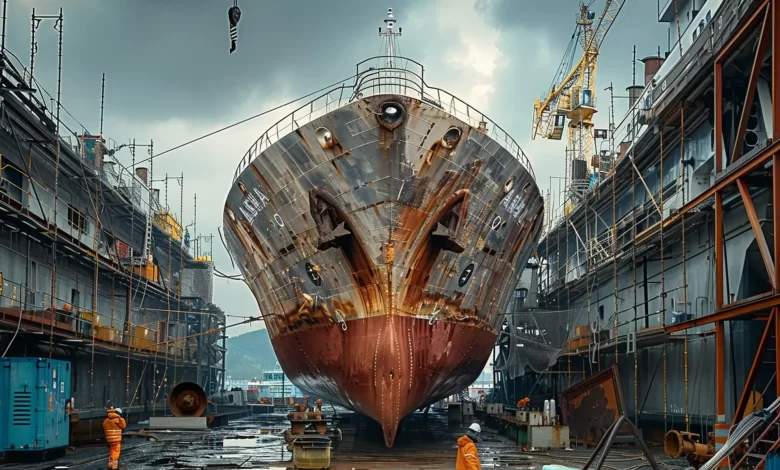Marine Inspection Services: What Every Shipowner Needs to Know

Key Takeaways:
- Marine inspection services are essential for ensuring the safety and longevity of a vessel.
- Regular inspections can prevent costly repairs and accidents.
- Inspections cover many areas,, including hull integrity, engine performance, and safety equipment.
- Professional inspectors bring expertise and advanced tools to identify potential issues.
Table of Contents:
- Introduction
- Importance of Marine Inspection Services
- Key Areas Covered in Inspections
- Benefits of Regular Inspections
- Choosing a Reputable Marine Inspection Service
- Conclusion
Introduction
Owning a ship or any kind of marine vessel comes with many responsibilities. Among the most significant is ensuring the regular inspection of your boat to confirm its safety and operational integrity. Marine inspection services are crucial as they help identify potential issues before they become costly repairs or cause accidents. This guide aims to provide shipowners with essential information on why these services are crucial and what they encompass.
Importance of Marine Inspection Services
Investing in marine inspection services is one of the most intelligent decisions a shipowner can make. These inspections ensure that your vessel complies with regulatory standards and is safe for operation. Regular inspections can reveal hidden issues that might not be apparent through routine maintenance. For example, corrosion in hard-to-reach places or minor stress fractures in the hull can be detected early, thus preventing significant damage or even catastrophic failure at sea.
Key Areas Covered in Inspections
Marine inspection services cover a broad spectrum of critical areas to ensure the vessel’s overall health and safety. Below are some of the critical components typically examined:
Hull Integrity
The hull is the backbone of any ship, and its condition is paramount. Inspectors check for signs of damage, corrosion, and structural integrity. Minor issues like small cracks or rust spots can indicate more significant problems.
Engine and Mechanical Systems
The engine and associated mechanical systems are scrutinized to ensure they operate efficiently. This includes checking oil levels, filtration systems, and fuel lines for wear and tear.
Electrical Systems
Electrical systems power essential functions such as navigation, communication, and safety equipment. Inspectors ensure that wiring and components are in good condition, checking for loose connections or corrosion.
Safety Equipment
Safety should never be compromised. Marine inspections cover life vests, lifeboats, fire extinguishers, and other emergency equipment to ensure they are readily available and functional.
Environmental Compliance
Adherence to environmental regulations is also an essential aspect of marine inspections. This includes appropriately disposing of waste, managing emissions, and ensuring the vessel does not contaminate the aquatic environment.
Benefits of Regular Inspections
Regular marine inspections offer numerous benefits beyond regulatory compliance:
- Early Detection of Issues: Catching problems in their early stages can significantly reduce repair costs and prevent operational downtime.
- Enhanced Safety: A well-inspected vessel is safer, reducing the risk of accidents and ensuring the crew’s well-being.
- Improved Efficiency: Inspections can identify inefficiencies in the engine or other systems, leading to better fuel economy and lower operational costs.
- Increased Vessel Longevity: Regular maintenance and inspection extend the life of your vessel by keeping it in optimal condition.
- Peace of Mind: Knowing that your ship is in excellent working order brings peace of mind, allowing you to focus on your operations.
Choosing a Reputable Marine Inspection Service
Choosing the exemplary marine inspection service ensures thorough and accurate inspections. Here are some tips for selecting a reputable service:
- Experience and Credentials: Look for services with a proven track record and proper certifications. Experienced inspectors are more likely to catch nuanced issues that less experienced ones might miss.
- Comprehensive Services: Ensure the inspection service covers all the critical areas of your vessel. A thorough inspection will give you the most accurate picture of your vessel’s condition.
- Advanced Tools: Modern inspection tools like ultrasonic testing and thermal imaging can provide more precise and non-invasive diagnostics.
- Good Reviews: Check reviews and testimonials from other shipowners. Positive feedback often indicates reliable and high-quality service.
- Transparent Reporting: A good inspection service should provide clear, detailed reports listing all findings and recommended actions.
Conclusion
Marine inspection services are integral to any vessel’s safe and efficient operation. These inspections not only help comply with regulatory standards but also play a crucial role in extending the ship’s life and improving its performance. By investing in regular, comprehensive inspections, shipowners can ensure the safety of their crew, the integrity of their boats, and the sustainability of their operations. Choose a reputable inspection service and make marine inspections a cornerstone of your vessel maintenance routine.





